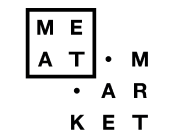new work in improvisation, composition and electronics
<p class="p1">Church of All Nations, 180 Palmerston Street (corner Drummond Street), Carlton</p>
Concert Head:
Erkki Veltheim – violin, composition with Scott Tinkler trumpet and Anthony Burr bass clarinet
Concert Support:
Sometimes, always, in musical history, the best players are also the ones doing the newest things! In this group of three concerts of the Astra season across August and September, a gallery of noted Australian performers in the domains of string, and wind instruments offer distinctive versions and visions of contemporary playing.
Erkki Veltheim is a performer of legendary skills on both violin and viola, and stands at the forefront of new work crossing boundaries between improvisation and composition, electronics and vernacular idioms. He is a current holder of a Sidney Myer Creative Fellowship and is active as a performer and composer in many countries.
In this concert for Astra, he is joined for half of the program by two other illustrious Australian and international musicians, Anthony Burr (bass clarinet) and Scott Tinkler (trumpet), forming a rare opportunity to hear the three together as an improvising trio.
The solo part of the program is a significant event for Melbourne audiences, with the presentation of Veltheim’s newest work in violin and electroacoustics, Turing Test – developed during his Australia Council residency at the Cité International des Arts in Paris in 2012. Veltheim combines improvised acoustic violin input with a fully automated processing patch composed in Max. A Turing test compares a machine's responses to those of a human, and has been integral to the thinking around 'artifical' or 'machine' intelligence. Veltheim describes the work as a conversation between the live violinist and the processing patch, each being influenced by the other's responses.
Improvising trio Scott Tinkler, Anthony Burr and Erkki Veltheim synthesize influences from a myriad of sources including Elliott Carter and South Indian Carnatic music. Driven by the belief that rules must be learnt in order to be broken, this trio proposes real-time composition as a disciplined and joyful method of music-making somewhere between reason and intuition.






